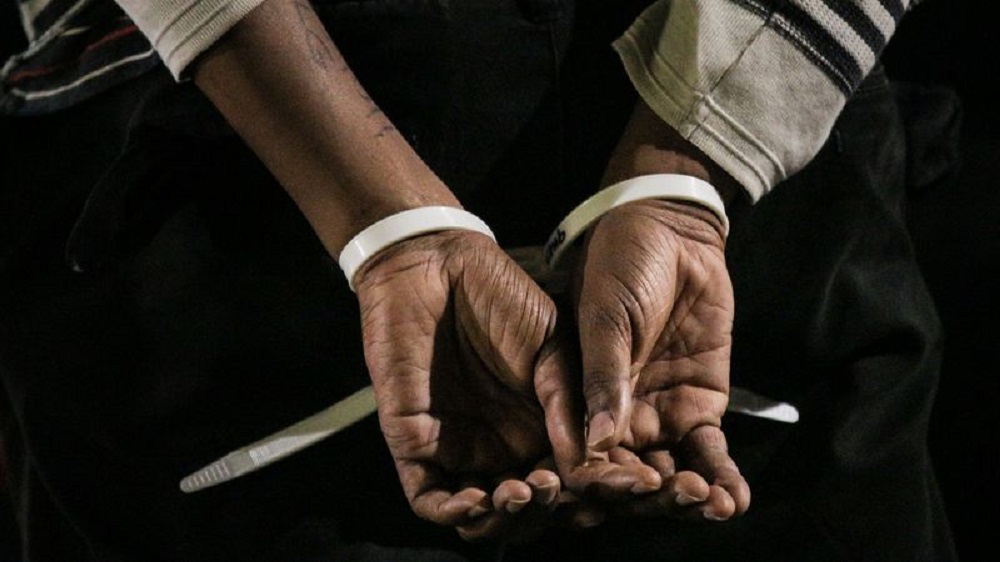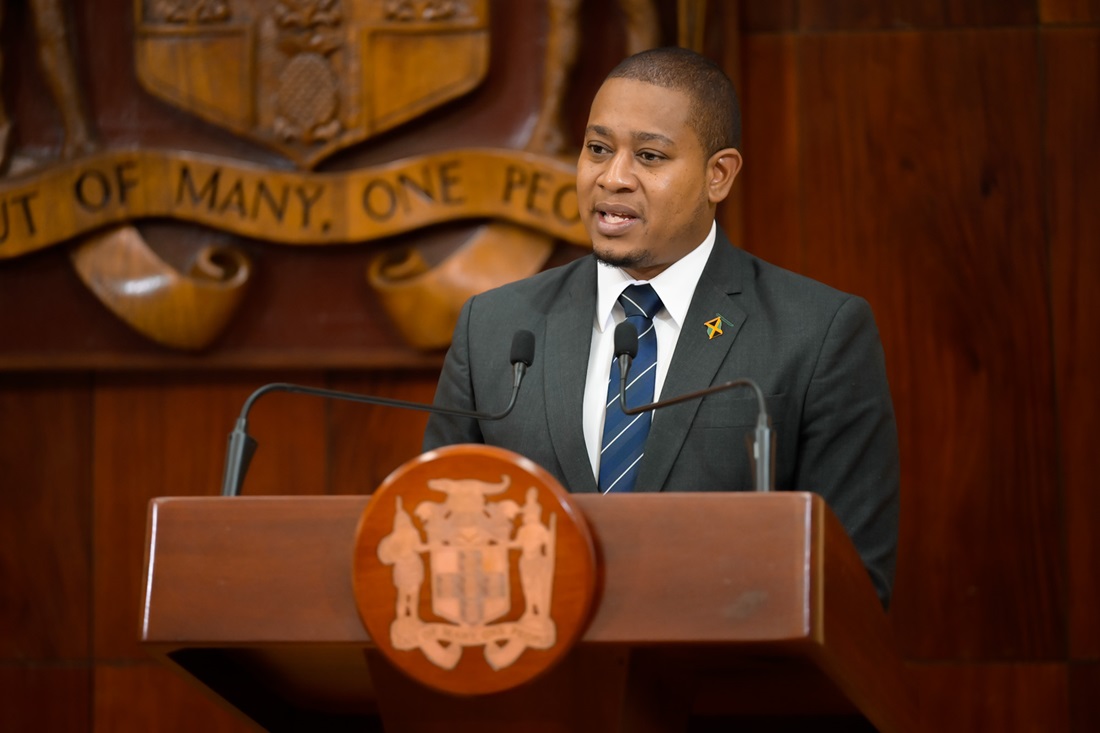#Jamaica, November 8, 2017 – Kingston – Head of the Corporate Communications Unit of the Jamaica Constabulary Force (JCF), Superintendent Stephanie Lindsay, is encouraging Jamaicans to know their rights and the correct protocol for arrest under the law.
Speaking with JIS News, Ms. Lindsay states that the police may carry out an arrest for different reasons, such as to prevent an offence, to prevent the continuation of an offence and to prevent escape. She says that regardless of the circumstances leading to an arrest, the basic rights of the individual should be observed at all times during the process.
“The police officer will carry out an arrest in three main ways… on view, which is when you detect an offence taking place… on information from a third party, that is, when someone comes to the police station and makes a report. There is an investigation and (an) arrest is made based on the information provided. We also conduct Arrest on Warrant,” Superintendent Lindsay explains.
Under Section 15 of the Constabulary Force Act, it is lawful for any Constable, without warrant, to apprehend any person found committing any offence punishable upon indictment or summary conviction, and to take him before a Justice to enquire into the circumstance of the alleged offence. The law also provides for the persons to be committed to the nearest jail, prison or lock-up to be dealt with, or to grant the person bail in accordance with the Bail Act.
Ms. Lindsay states that in a normal arrest procedure, the officer identifies himself or herself to the individual and informs the person of the offence for which he or she is being arrested and charged. The officer then restrains and cautions the individual.
An essential aspect of the arrest is the ‘caution’, which notifies the offender of his/her rights during the process, particularly the right to remain silent, as anything said will be taken down in writing and used as evidence in court. Following the caution, the police should then escort the detainee to the station. Here, it is determined whether the person is eligible to be granted bail at the station level, or is to be remanded in custody for the matter to be brought before a Magistrate to grant or deny the bail application.
Ms. Lindsay also advises persons to carry proper identification (driver’s licence, passport, voter’s ID) when going to the station.
“If you don’t have proper identification when you are taken to the police station, you can’t get bail (because) you cannot be properly identified. So it is important that you have some kind of proper identification. If you don’t have it on your person, then you will be required to ask someone to bring some form of identification,” she says.
If, however, the person refuses or is unable to give the security (money or property) required as a condition for bail, it is lawful for the officer or sub-officer to detain the person in custody until such person can be brought before a Justice and dealt with in like manner, as is directed in the case of someone apprehended under the Act without warrant. For persons with special needs, such as a medical condition, provision should be made, as these persons have a right to medical care.
Other rights include the right to meals for the duration of confinement, as well as the right to a safe environment, to the extent that the person is to be protected from harm and injury while in police custody. This is particularly important in the case of persons with mental illness.
“We have to ensure that they are separated from the other prisoners, so that they are not put in a situation where they are vulnerable or cause harm to the other detainees,” Ms. Lindsay states.
Once at the police station, the remanded person is entitled to a phone call to notify someone of the arrest.
Ms. Lindsay explains that more than one phone call is permissible to ensure that someone is notified of the person’s arrest and for the person to make arrangements for legal counsel and for the care of dependents.
Where a minor is present at the point of arrest, the offender is allowed to call someone to take custody of the child. If there is no one, the police will then contact the Child Development Agency (CDA) to make arrangements for the child to be placed in State care until the person is granted bail, at which time they can retrieve the child.
Meanwhile the Head of the Corporate Communications Unit says that arrested persons are also entitled to legal representation, and if a detainee cannot afford a lawyer, the government provides representation through the Legal Aid Council.
“Once a person indicates that they cannot afford a lawyer, then the police will make contact with [an] attorney. Usually, you will find that attorneys are assigned to different parts of the island. The police will have a list of persons who are approved legal counsels … and you make arrangements for one of them to come in and represent the person who is being charged,” she explains. Also, the person should be interviewed in the presence of his/her attorney so that there is legal guidance throughout the process.
Additionally, where a child is in conflict with the law and has to be placed under arrest, the child should be told at the time of arrest in plain, simple, child-friendly language the reason for the detention. Additionally, the child’s parents or guardians should be immediately notified by the police of the arrest and the reason for the arrest.
The police are not permitted to question the child without legal representation. The Office of the Children’s Advocate (OCA) or Duty Counsel on the Legal Aid List is to be immediately contacted by the police where a child suspect is arrested and does not have legal representation. A child who is not charged within 24 hours of being arrested or detained, should be released into the care of the parents or guardians.
As it relates to bail application, depending on the gravity and nature of the charge, the detainee is entitled to bail. Bail can be granted at the station level for minor offences, or on the likelihood of the individual appearing before a court for a trial.
Section 25 of the Act states that the officer or sub-officer in charge of the police station or lock-up shall grant bail to that person in accordance with the Bail Act, unless the person has been taken into custody on a charge of murder, treason or treason felony.
The officer is charged with ensuring that the dignity of the detainee is maintained throughout the process (no draping or dragging of the individual). As far as is practicable, handcuffs must be used on males and violent females. Just as the police officer is guided by certain responsibilities in the arrest procedure, so too the individual that is being arrested must observe certain protocols.
Ms. Lindsay advises persons to cooperate with the justice officials.
“Once you are approached by the police and informed that you will be arrested, and you are notified of the offence, we want persons to cooperate with the police and not try to resist, because that could lead to an additional charge of resisting arrest. Don’t fight the police, because that could lead to another charge of assaulting the police. So we advise persons to cooperate with the (arrest) process,” she advises.
If during arrest an individual feels his/her rights have been violated, there are several avenues for redress.
On the advice of their attorney, civil action can be taken against the police and the Government to prove that the individual’s rights were violated by the police officers acting on behalf of the State.
Persons can also make a formal complaint and document the incident with the Police Complaints Department in the Inspectorate of the Constabulary Force. Complaints can also be lodged with the Independent Commission of Investigations (INDECOM).
Persons can also contact the Independent Jamaica Council for Human Rights, Jamaicans for Justice or the Office of the Public Defender for redress.
By: Rochelle Williams (JIS)


 News1 week ago
News1 week ago
 Health1 week ago
Health1 week ago
 TCI News4 days ago
TCI News4 days ago
 Caribbean News6 days ago
Caribbean News6 days ago
 Education7 days ago
Education7 days ago
 Caribbean News1 week ago
Caribbean News1 week ago
 Caribbean News6 days ago
Caribbean News6 days ago
 News1 week ago
News1 week ago
















